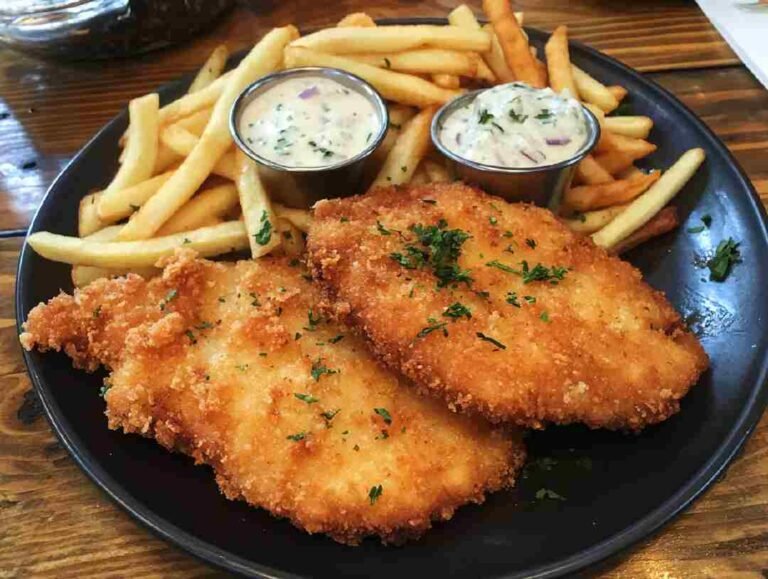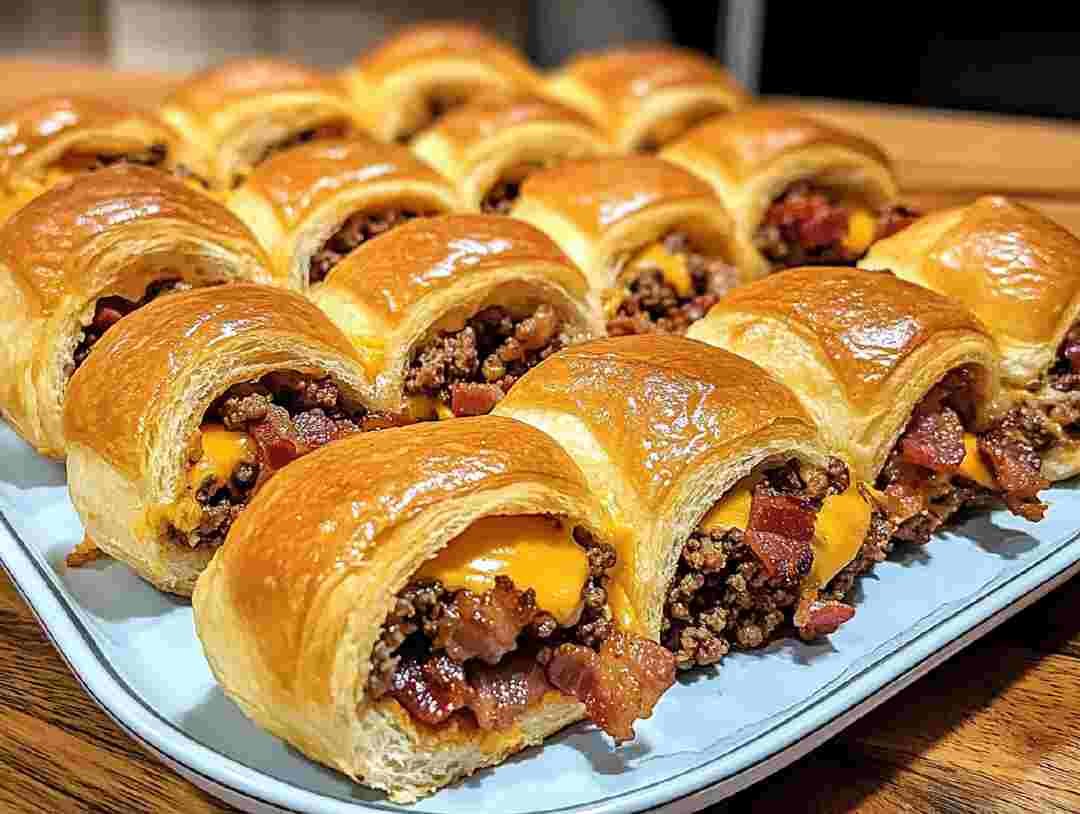Pork schnitzel and pork chop cutlets are favorites in many American homes. They offer different tastes and textures. Knowing the differences can make your cooking better and your meals more enjoyable.
ADVERTISEMENT
Pork chop cutlets are thicker and have more fat. Schnitzel, from European traditions, is thin and crispy. The main differences are in how they’re made, their thickness, and how they’re cooked.
Key Takeaways
- Pork schnitzel and pork chop cutlets are distinct pork preparations
- Schnitzel is typically thinner and more heavily breaded
- Pork chop cutlets are usually thicker with more natural fat content
- Cooking temperatures and times vary between the two cuts
- Each preparation offers a unique flavor and texture profile
Understanding Pork Cuts: From Loin to Cutlet
Choosing the right pork cut can make a big difference in your cooking. Pork has many cuts, each with its own taste, texture, and cooking method.
Pork comes in various cuts for different cooking needs. Knowing these cuts can help you cook better and improve your skills.
Types of Pork Cuts
- Loin Cuts: Lean and tender, perfect for quick cooking methods
- Shoulder Cuts: Well-marbled and ideal for slow cooking
- Leg Cuts: Versatile and can weigh up to 10 kg
- Belly Cuts: Rich in fat, great for roasting
Different Parts of the Pig
Each part of the pig has its own cooking possibilities. For example, the pork loin is lean and best enjoyed with the bone on for extra moisture.
“The quality of your cut determines the success of your dish” – Professional Chef
Quality Indicators in Pork Selection
When picking pork for cutlets, look for these quality signs:
- Even marbling
- Firm, pink meat
- Minimal moisture in packaging
- Fresh, clean smell
Today’s pork cuts are leaner than before. They offer better nutrition and still taste great for your cooking.
What Makes a Perfect Pork Schnitzel
To make a great pork schnitzel, you need to be precise and skilled. Start by picking the right pork cut and learning how to bread it well.
- Choose a tender cut of pork, preferably from the loin
- Pound the meat to a uniform ¼-inch thickness
- Create a crispy, golden-brown breading
- Maintain precise cooking temperatures
When you’re breading the pork, focus on making it crispy on the outside and juicy inside. This is key to a great schnitzel.
| Ingredient | Quantity | Purpose |
|---|---|---|
| Pork Loin | 5 ounces per serving | Primary protein |
| Panko Breadcrumbs | 1½ cups | Crispy coating |
| Eggs | 2 | Breading adhesion |
| Canola Oil | 6 tablespoons | Frying medium |
“The art of pork schnitzel is in its simplicity and precision.” – Traditional Austrian Cooking
How you cook it matters a lot. Heat the oil right and fry each side for 3-5 minutes. This will give you a golden crust. Make sure the inside is 145°F for safety.
Here are some nutritional facts about your pork schnitzel:
- High protein content: 31g per serving
- Moderate fat: 11g per serving
- Low carbohydrate: 21g per serving
Getting good at making pork schnitzel takes time. But with these tips, you’ll make a meal that wows everyone.
The Unique Characteristics of Pork Chop Cutlets
Pork chop cutlets are a special treat in the kitchen. They are loved by both home cooks and chefs. This is because they add something unique to your dishes.
Exploring pork chop cutlets opens up a world of tasty options. The main differences are in how they are prepared, their texture, and how they are cooked.
Bone-in vs Boneless Variations
Pork chop cutlets come in two main types. Each type affects your cooking in different ways:
- Bone-in cutlets: They have deeper flavor and stay juicier
- Boneless cutlets: They are easier to prepare and cook evenly
Thickness and Texture Considerations
The best pork chop cutlets are ½ to ¾ inches thick. You can also pound them to ¼ inch for quicker cooking.
| Cutlet Characteristic | Recommended Specification |
|---|---|
| Thickness | ½ to ¾ inches |
| Weight per Cutlet | 4 to 5 ounces |
| Cooking Temperature | 350°F |
| Cooking Time per Side | Approximately 90 seconds |
| Internal Temperature | 140°F |
“The magic of pork chop cutlets lies in their ability to transform from a simple ingredient to a culinary masterpiece with the right technique.”
Choosing between bone-in and boneless cutlets depends on your cooking style and taste. Bone-in cutlets have a richer flavor. Boneless cutlets are easier to prepare and cook more evenly.
How to Cook Pork Cutlets: A Complete Guide
Cooking pork cutlets can be a fun experience when you know the right steps. Learning how to cook them perfectly makes for a tasty meal. Whether you choose to bake or pan-fry, understanding the cooking method is key.

- Preparation is crucial. Start by pounding your pork cutlets to an even 3/8-inch thickness
- Season generously with salt, white pepper, and your favorite herbs
- Create a breading station with three key components:
- 1 ½ cups fine breadcrumbs
- ½ cup panko breadcrumbs
- 2 large eggs for coating
There are many ways to cook pork cutlets, each with its own delicious results:
| Cooking Method | Time per Side | Temperature |
|---|---|---|
| Pan-Frying | 2-3 minutes | Medium-high heat |
| Baked Pork Cutlets | 10-12 minutes total | 400°F |
| Grilling | 4-5 minutes | Medium-high heat |
Pro tip: Always let your pork cutlets rest for 3-5 minutes after cooking to retain maximum juiciness!
Baked pork cutlets are a healthier option. Place them on a lined baking sheet and cook at 400°F for 10-12 minutes. Make sure the internal temperature hits 145°F for safety. Each serving has about 719 calories and 45.8g of protein.
The secret to great pork cutlets is not overcooking them. Watch the time, use a meat thermometer, and enjoy your tender meal!
Essential Breading Techniques for Schnitzel
Learning to bread pork schnitzel turns simple meat into a crispy, golden treat. The right method can turn a soggy cutlet into a crispy masterpiece.
Breading pork schnitzel needs precision and patience. You aim for a crispy outside that keeps the meat juicy.
Traditional Breading Methods
The classic three-step breading process for pork schnitzel is:
- Seasoned flour coating
- Egg wash dip
- Breadcrumb final layer
Each step is crucial. Flour helps the egg wash stick, the egg wash holds the breadcrumbs, and the breadcrumbs make it crispy.
Common Breading Mistakes to Avoid
When making pork schnitzel, avoid these mistakes:
- Uneven meat thickness can lead to inconsistent cooking
- Wet meat prevents proper breadcrumb adhesion
- Overcrowding the pan reduces crispiness
“The secret to perfect schnitzel is in the details of breading and frying.” – Chef’s Wisdom
Pro tip: Dry your pork cutlets before breading. Keep the oil at 330°F for crispy, not greasy, results.
Temperature and Timing: Keys to Perfect Pork

Learning to cook pork cutlets well means paying close attention to temperature and timing. The key to tender, juicy pork is knowing the right cooking steps. These steps turn a simple cut into a dish fit for a restaurant.
Temperature is crucial when cooking pork cutlets. The FDA says to cook pork to an internal temperature of 145°F for safety and flavor. This temperature makes your pork both safe and deliciously moist.
“Cooking pork is an art of temperature control and timing” – Professional Chef
- Use a meat thermometer for accurate readings
- Allow meat to rest at room temperature for 20 minutes before cooking
- Let pork rest 3-4 minutes after cooking to redistribute juices
Cooking times depend on the cut’s thickness. Thin cutlets cook fast (about 3-4 minutes per side). Thicker pork chops might need 6-7 minutes in the oven after searing.
| Pork Cut Type | Cooking Time | Recommended Temperature |
|---|---|---|
| Thin Cutlets | 3-4 minutes per side | 145°F |
| Thick Pork Chops | 6-7 minutes in oven | 145°F |
Pro tip: Choose high-heat oils like canola or grapeseed for the best searing results when cooking pork cutlets.
Serving Suggestions and Accompaniments
When you make pork schnitzel or pork chop cutlets, the right sides can make your meal special. The right choices can boost the taste and make your meal unforgettable.
Interesting facts show what people like to eat with their pork. Potatoes are a big hit, with 7 out of 20 sides featuring them. The right side can really make your pork dish stand out.
Classic Side Dishes
- Traditional German potato salad
- Sauerkraut with caraway seeds
- Roasted seasonal vegetables
- Buttered egg noodles
- Crisp green salad
Modern Pairing Ideas
Today, chefs are trying new flavor mixes for pork. The data shows some interesting trends:
| Flavor Profile | Side Dish Examples | Preparation Time |
|---|---|---|
| Sweet & Savory | Apple-cranberry compote | 15 minutes |
| Creamy | Gruyère mashed potatoes | 20 minutes |
| Spicy | Jalapeño cornbread | 25 minutes |
About 37.5% of suggested sides include fresh veggies. They offer healthy choices for your pork dishes. The trick is to mix flavors and textures for a balanced meal.
“Great side dishes aren’t just additions—they’re culinary companions that complete your dining experience.”
Whether you like traditional or new pairings, the right sides can change your pork dishes. They can enhance their rich, savory taste.
Cultural Origins and Cooking Traditions
Pork schnitzel and pork chop cutlets take us on a culinary journey around the world. These dishes show the rich diversity of cooking traditions. They have traveled from Austrian kitchens to Japanese restaurants, becoming a global food favorite.
The story of pork schnitzel starts in Austria, where it’s a beloved dish. Wiener Schnitzel, originally made with veal, led to many variations using pork. In Central Europe, pork schnitzel is more than food; it’s a symbol of family and tradition.
“A good schnitzel tells a story of generations and culinary heritage.” – Traditional Austrian Chef
Pork chop cutlets have their own global story. Different cultures have made these cuts their own with special cooking methods:
- American Southern cuisine features crispy breaded pork chop cutlets
- Polish kotlet schabowy represents a beloved national dish
- Japanese tonkatsu offers a distinctive deep-fried interpretation
- Asian cuisines often incorporate complex marinades and spice blends
Exploring the cultural roots of pork schnitzel and pork chop cutlets shows how food connects us. It brings people together through shared cooking traditions and flavors.
Conclusion
Learning to cook pork cutlets opens up a world of flavors. You can make everything from classic pork schnitzel to bone-in pork chop cutlets. It’s all about mastering the right techniques and choosing the best cuts.
Pork chop cutlets are super versatile, with options like bone-in or boneless. Your cooking style can make a big difference. For example, a traditional schnitzel has crispy breading, while a grilled cutlet is golden and perfect.
Remember, cooking pork cutlets to 145°F is key for safety and flavor. They’re also packed with vitamins and minerals like Vitamin B6, B12, Iron, and Zinc. By trying different breading and cooking methods, you’ll find amazing flavors.
Getting good at cooking pork cutlets can lead to amazing meals. You’ll impress your family and friends with your skills. It’s a journey that lets your creativity shine.
FAQ
What is the main difference between pork schnitzel and pork chop cutlets?
Pork schnitzel is made from thin pork, breaded, and fried, from Austrian cuisine. Pork chop cutlets are thicker, with less breading and more meat flavor.
What cut of pork is best for making schnitzel?
The best cut for schnitzel is the pork loin. It’s lean, tender, and can be pounded thin. Choose a boneless loin for even thickness.
How do I prevent my pork cutlets from becoming dry?
To keep cutlets juicy, don’t overcook them. Use a meat thermometer to check for 145°F. Let them rest for 3-5 minutes after cooking. Brining or using a meat mallet helps too.
Can I bake pork cutlets instead of frying?
Yes, baking is a healthier option. Coat cutlets in breadcrumbs and bake at 425°F for 15-20 minutes. Spray with oil for crispiness.
What are the best side dishes for pork schnitzel?
Try potato salad, sauerkraut, and lemon wedges for a traditional taste. For something new, go for roasted veggies, cucumber salad, or tangy coleslaw. Choose sides that match the schnitzel’s crispy, savory taste.
ADVERTISEMENT
How thick should pork cutlets be?
Schnitzel cutlets should be about 1/4 inch thick. Pork chop cutlets can be 1/2 to 3/4 inch thick. Even thickness ensures even cooking.
What is the traditional breading process for schnitzel?
The classic breading is flour, eggs, and breadcrumbs. This method gives a crispy, golden exterior that sticks well to the meat.
How can I tell when pork cutlets are fully cooked?
Check with a meat thermometer for 145°F. The meat should be white with no pink. Let it rest for 3-5 minutes to keep juices in.
Are there regional variations of schnitzel?
Yes, schnitzel has many variations. German, Czech, and Hungarian cuisines offer their own takes, using different meats and breading.
Can I prepare pork cutlets in advance?
You can prep cutlets ahead by breading and refrigerating them for up to 24 hours. Cook them just before serving for the best crispiness.
Print
Crispy Pork Cutlets with Creamy Gravy
Get ready to serve up a dinner everyone will love! These tender and flavorful crispy pork cutlets are served with a mouthwatering cream gravy, featuring dill pickles, jalapeño, and green onions for a unique twist. Not a fan of pork? No problem—this recipe works just as well with veal, beef, turkey, or chicken.
This tried-and-true recipe has been perfected by John Mitzewich and tested by the Allrecipes Test Kitchen, so you know you’re in good hands.
- Total Time: 25
- Yield: 4
Ingredients
For the Cutlets:
2 (1 1/4 pound) pork tenderloins, fully trimmed and cut into 8 pieces
Salt and freshly ground black pepper, to taste
2 tablespoons all-purpose flour (plus more, as needed)
2 large eggs, beaten
3 cups panko bread crumbs
1/2 cup vegetable oil (for frying)
For the Cream Gravy:
2 tablespoons butter
1/3 cup diced dill pickles
1 jalapeño pepper, seeded and minced
1 bunch green onions, chopped (green tops reserved for garnish)
A pinch of cayenne pepper, or to taste
1 1/2 tablespoons all-purpose flour
1 1/2 cups cold milk (or more, as needed)
1 teaspoon Worcestershire sauce, or to taste
1/4 teaspoon freshly ground black pepper, or more to taste
Salt, to taste
Instructions
Step 1: Pound and Prep the Pork
Place pork pieces between two sheets of heavy plastic (resealable freezer bags work brilliantly). On a solid surface, pound the pork with the smooth side of a meat mallet until it’s about 1/2 inch thick.
Season both sides with salt and black pepper. Dust lightly with 2 tablespoons of flour, ensuring even coverage. Pour the beaten eggs over the cutlets, coating thoroughly.
Step 2: Coat the Cutlets
Spread panko breadcrumbs in a shallow bowl. Press each piece of pork firmly into the breadcrumbs to coat on both sides.
Transfer the breaded pork to a clean plate, cover with plastic wrap, and refrigerate for 15 minutes.
Step 3: Make the Cream Gravy
Melt butter in a skillet over medium heat. Add the diced pickles, minced jalapeño, and chopped green onions (reserve green tops). Sauté until the onions soften, about 3 minutes.
Stir in 1 1/2 tablespoons flour and cook for another 3 minutes, stirring constantly.
Slowly whisk in 2–3 tablespoons of cold milk to form a paste, then gradually add the remaining milk. Stir in Worcestershire sauce, black pepper, and a pinch of cayenne.
Simmer on low for 5 minutes, adjusting the seasoning as necessary. Set the gravy aside.
Step 4: Fry the Pork Cutlets
Heat 1/4 cup vegetable oil in a large skillet over medium-high heat. Fry half of the breaded cutlets for 4–5 minutes per side, or until golden brown and cooked through.
Transfer cooked cutlets to a plate lined with paper towels. Sprinkle with salt. Repeat with the remaining cutlets and oil.
Step 5: Serve and Enjoy
Plate the crispy pork cutlets and generously spoon the cream gravy over the top. Garnish with reserved green onion tops.
Serve alongside mashed potatoes, rice, or a crisp side salad for a complete meal.
Notes
If substituting proteins, keep in mind the cooking time may vary. Chicken and turkey will need to be cooked until the internal temperature reaches 165°F (74°C).
For a spicier kick, leave the seeds in the jalapeño.
Refrigerating the breaded cutlets helps the coating adhere better and crisp up beautifully while frying.
- Prep Time: 10
- Cook Time: 15
- Category: Main Course
- Method: Pan-frying
- Cuisine: International / American
- Diet: Gluten Free
Nutrition
- Calories: 748
- Fat: 29
- Carbohydrates: 71g
- Protein: 67g
ADVERTISEMENT
















